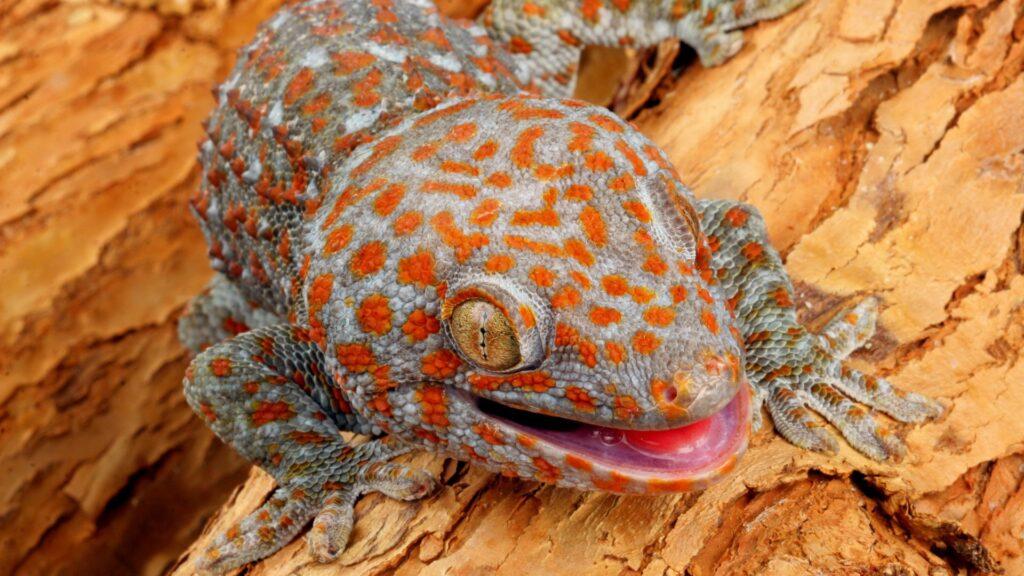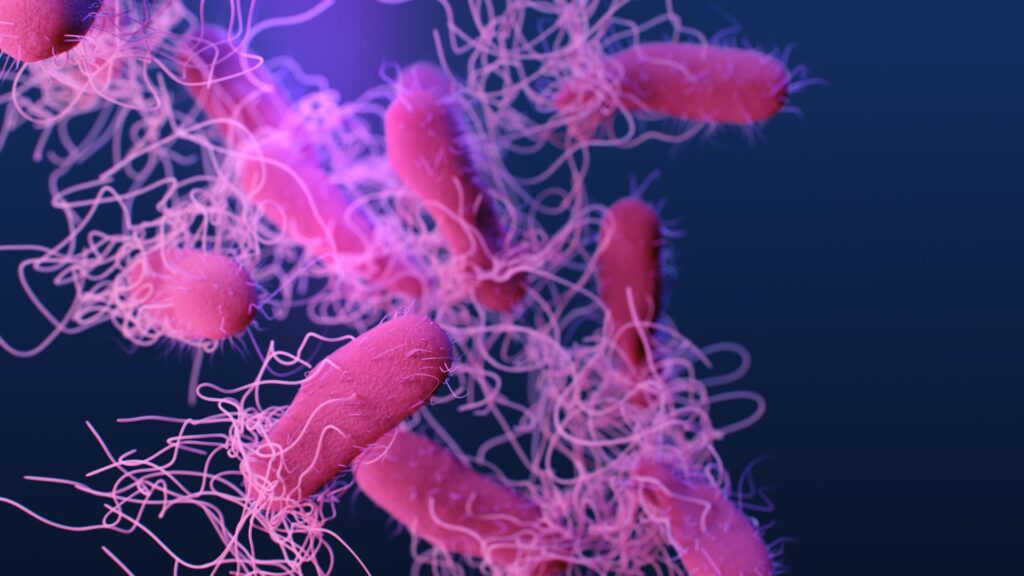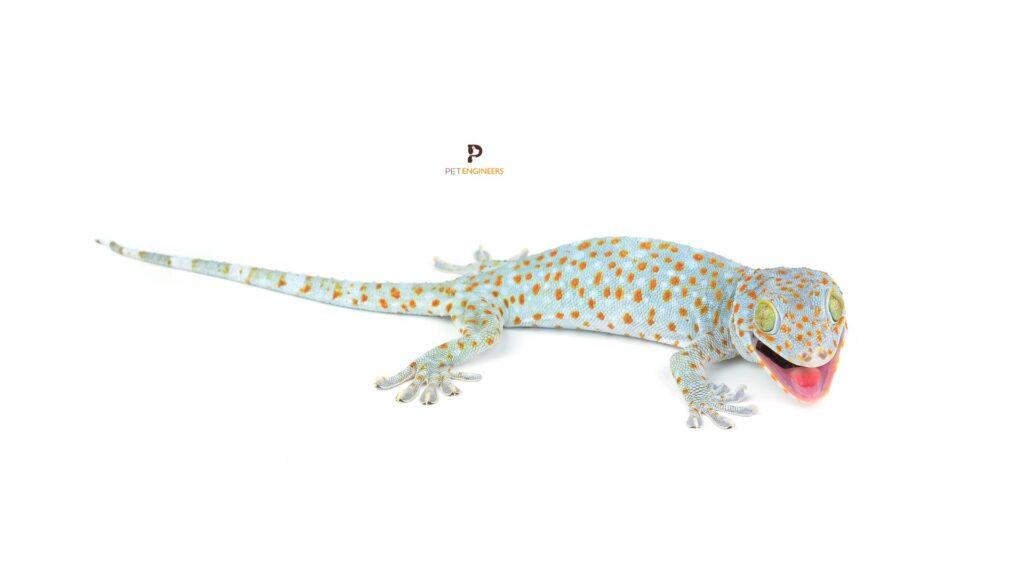
Key Takeaway:
- Tokay geckos are neither poisonous nor venomous reptiles.
- However, their saliva can sometimes contain salmonella bacteria which can cause health problems when bitten by them.
Are you a fan of tokay geckos or considering getting one as a pet? Before you do, it’s important to know the ins and outs of these fascinating reptiles, especially when it comes to their safety.
In this article, we’ll dive into some frequently asked questions about tokay geckos, such as whether or not they’re poisonous or venomous.
Suppose they carry dangerous pathogens; what to do if you’re bitten by one? So, let’s get down to business!
Do Tokay Geckos Have Poison?
The short answer is no, tokay geckos are not poisonous. They do not produce any toxic substances that could harm predators or humans.
Tokay geckos are harmless to humans and other animals.
This makes them a popular choice for pet owners who want a unique and interesting pet without having to worry about toxic saliva or venom.
However, it’s important to note that tokay geckos can carry salmonella, a type of bacteria that can cause illness in humans and other animals.
This was confirmed by the researchers who found that tokay geckos harbor bacteria that can pose a health concern to pet owners.

Are Tokay Geckos Venomous?
No, tokay geckos are not venomous reptiles. Unlike some species of snakes or spiders, tokay geckos do not produce any venom that can harm predators or humans.
In fact, geckos are considered to be completely harmless to humans.
They do not have any toxic saliva or other dangerous secretions, so there is no need to worry about getting sick or suffering any adverse effects if you handle them or come into contact with them.
Do Tokay Geckos Carry Dangerous Pathogens?
Yes, tokay geckos can carry dangerous pathogens that pose a health risk to pet owners.
Salmonella, a type of bacteria that may infect humans and other animals, can be found in tokay geckos.
This is why it’s crucial to treat tokay geckos with care and to rinse your hands thoroughly after handling them or their enclosure.
It’s also important to keep their enclosure clean and to take precautions when cleaning it, as the bacteria can spread to surfaces and other objects in the environment.
This can increase the risk of infection, especially for people with weakened immune systems.
So, while tokay geckos are not poisonous or venomous, they can still carry pathogens that pose a risk to human health.
Pet owners should be aware of these potential health hazards and take appropriate precautions to minimize the risk of infection.

Are Tokay Geckos Aggressive Reptiles?
Tokay geckos are typically aggressive, territorial, and possess a powerful bite. The tokay gecko’s powerful bite makes it unsuitable for inexperienced owners.
In addition, the severity of the bite is proportional to the gecko’s size; larger (often male) tokay geckos bite is capable of penetrating the skin, causing instant bleeding. Females are also very aggressive especially when they have just laid eggs.
Tokay geckos can also become stressed if they are handled too much or if their environment is unsuitable for their needs, and this can cause them to become even more aggressive.
In general, tokay geckos are known for their unique appearance, loud calls, and aggressive behavior, and they are not suitable for everyone.
How Do Tokay Geckos Defend Themselves?
Tokay geckos have the ability to change color to blend in with their surroundings, making it more difficult for predators to spot them.
In addition to the above-mentioned defense mechanism, tokay geckos can drop their tails as a defense mechanism.
This is a process known as tail autotomy, and it allows the tokay gecko to escape from danger by sacrificing its tail and distracting the predator while the gecko runs away.
It’s important to note that tail autotomy is not harmful to the tokay gecko, as the tail will eventually grow back.
However, it can be stressful for the gecko and should be avoided whenever possible by providing a safe and suitable environment.
Overall, Tokay geckos have a number of defense mechanisms to protect themselves in the wild, including tail autotomy, camouflage, and spiky skin.
Are Tokay Geckos Poisonous to Dogs?
The short answer is no, tokay geckos are not poisonous to dogs. However, according to Dog Care, some houseplants that tokay geckos may be housed near, such as ficus, can be toxic to dogs if ingested.
It’s important to remember that tokay geckos do not pose a direct threat to dogs.
However, if a dog were to try to bite or eat a tokay gecko, the gecko may bite back in self-defense, which could cause injury to the dog.
In general, it’s best to keep dogs and tokay geckos separate to avoid any potential conflicts and to ensure the safety of both animals.
If you do have both dogs and tokay geckos in your household, it’s important to supervise them and to make sure that the tokay geckos have a safe and secure place to retreat to if they feel threatened.

What to do If Bitten by a Tokay Gecko?
If you are bitten by a tokay gecko, it’s important to clean and care for the bite to prevent infection. Tokay geckos can harbor bacteria that can cause skin infections if introduced into the body through a bite.
- First, wash the bite thoroughly with soap and water for at least 20 seconds.
- Then, apply an antiseptic such as hydrogen peroxide or alcohol to the bite.
If you experience any symptoms of infection, such as redness, swelling, or pain that persist or worsens, seek medical attention as soon as possible.
Additionally, it’s a good idea to avoid handling tokay geckos in the future, as they can be aggressive and may bite if they feel threatened.
Summary
Tokay geckos are a popular pet for pet owners who want a unique and interesting pet without having to worry about toxic saliva or venom.
Tokay geckos are aggressive, territorial, and possess a powerful bite, making them unsuitable for inexperienced owners.
Tokay geckos can also become stressed if handled too much or if their environment is inappropriate for their needs.
They can also carry dangerous pathogens that pose a health risk to pet owners.
To ensure their safety, it is important to handle them with care and to wash their hands thoroughly after handling them or their enclosure.
Tokay geckos have evolved a number of defense mechanisms to protect themselves in the wild, such as tail autotomy, camouflage, and spiky skin.
Tokay geckos are not poisonous to dogs, but some houseplants kept in tokay’s enclosure can be toxic if ingested.
It is important to keep dogs and tokay geckos separate to avoid potential conflicts and to ensure the safety of both animals.
If bitten by a tokay gecko, it is important to clean and care for the bite thoroughly and monitor it for signs of infection.
If any symptoms of infection persist or worsen, seek medical attention as soon as possible.
Sources:

